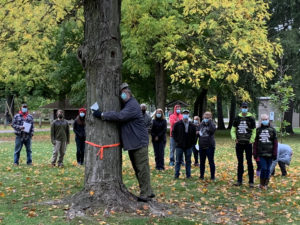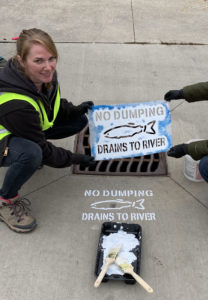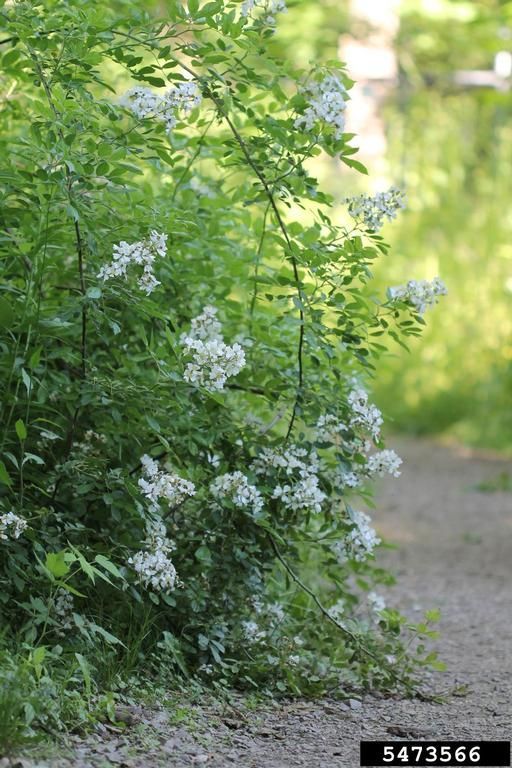OTW Partners for the 17th Annual Charlotte Conservation Day!

This tree will be monitored for invasive pest species as a part of the Sentinel Tree Program
On Saturday, October 3rd, 22 volunteers came together at Bennett Park for the 17th Annual Charlotte Conservation Day! Just as in previous years devoted conservationists from Charlotte and the surrounding community came out for the event, which was put on by the Eaton Conservation District, the City of Charlotte, and MUCC On The Water Program.
Volunteers had the opportunity to participate in multiple educational activities. To start the day, the Eaton Conservation District selected a Sentinel Tree in Bennett Park right near the Battle Creek River. This tree was selected, as a part of the Michigan State University Extension Sentinel Tree Program , and the tree health will be monitored by the Eaton Conservation District at future volunteer events for invasive pest species.

All Stormwater Drains in Charlotte eventually lead to the Battle Creek River.
Another group of volunteers went downtown Charlotte to stencil anti-dumping signage on stormwater drains that lead right to the Battle Creek River. It was a terrific way to bring awareness about the problem of stormwater pollution in Charlotte. To learn more about Stormwater pollution in Charlotte, follow this link .
One other group of volunteers went to work doing trail maintenance work with Matt Griffith from the City of Charlotte. Volunteers were also able to remove at least 60lbs of trash from Butternut Creek as well as the trails surrounding Bennett Park. The Charlotte Conservation Day was the eighth event of the On The Water field season, and it was a great day to be outside, getting things done.
The post OTW Partners for the 17th Annual Charlotte Conservation Day! appeared first on Michigan United Conservation Clubs.
Recent Posts



